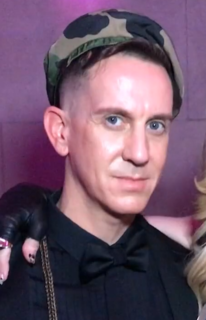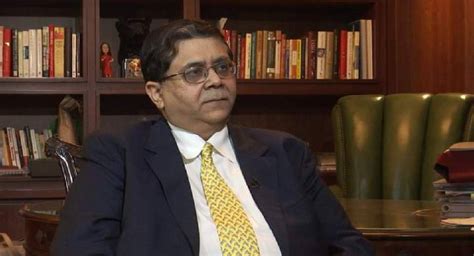A Quote by Karan Bajaj
India went through a dramatic revolution after the '90s when our economy started opening up for the first time and Indians were now experiencing the Western life, if you will. Drugs and sex and a lot of those influences came in as the economy stabilized, and we were growing up and experiencing that. The Indian writing market was very small at that time. Our literature was very attuned to what Western audiences were interested in, so everybody was writing about the slums in India and magic realism or stories about Hindus and Muslims and partition.
Quote Topics
About
After
Audiences
Came
Dramatic
Economy
Everybody
Experiencing
First
First Time
Growing
Growing Up
Hindus
India
Indian
Indians
Influences
Interested
Life
Literature
Lot
Magic
Magic Realism
Market
Muslims
Now
Opening
Opening Up
Our
Partition
Realism
Revolution
Sex
Slums
Small
Started
Stories
Those
Through
Time
Up
Very
Were
Western
Will
Writing
Related Quotes
The reality that we were growing up in was very young and vibrant, and nobody was capturing that part of India. I started to backpack after getting out of college. I hiked and did a lot of things nobody was capturing in art at all in India, so I wrote my first novel. It was a very, trippy, experience-filled novel, and it ended up doing very well in India because nobody was writing about that at that point.
My being Indian is possibly the biggest thing that influences my stories. Not just in terms of settings - most of the settings in my stories are Indian - but also in terms of characters and plot. I think growing up in India grew my imagination in certain ways that would not have happened in any other place. I'm also fascinated by the idea of India, and writing stories allows me to explore this. As for thematic elements, they are probably pretty obvious in my stories. I also hope that my stories bust stereotypes at least to a modest extent.
If one looks at the history of India after independence in 1947, for the first 30 to 40 years I think we were effectively given up as a basket case because we made various attempts through socialism to effectively alleviate poverty and keep growing but that model didn't work. So even when the pre-90s when we spoke to foreign corporation of foreign businessmen who wanted to do business with us, we were always a land of opportunity but an opportunity whose time have not yet come.
My father was a writer, so I grew up writing and reading and I was really encouraged by him. I had some sort of gift and when it came time to try to find a publisher I had a little bit of an "in" because I had his agent I could turn to, to at least read my initial offerings when I was about 20. But the only problem was that they were just awful, they were just terrible stories and my agent, who ended up being my agent, was very, very sweet about it, but it took about four years until I actually had something worth trying to sell.
The very technologies that were supposed to free up our time seem instead to be consuming it, tacking hours onto our already extended days. The very interconnectedness of life in a global networked economy that creates so many opportunities also makes all our decisions more complex, crucial, even fragile.
Trump's vision for America parallels greatly with the vision that Ronald Reagan used and he implemented to revive the country during a very similar time where we had a president who told us that we were in a time of malaise in the American economy and that things are just gonna be that way for a while. Reagan steps up in that great first inaugural address and says, "And why shouldn't we dream great dreams? After all, we're Americans." And the American people came roaring back, the American economy came back.
I want the marginality to come into the center. This is the thing I was conscious of growing up, when I later lived in England. I saw all these war movies that came out shortly after the war, and they were all about the war being fought by Englishmen or Americans, there were no other "allies" in it - from India or Australia, etc.






























